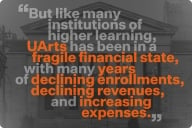You have /5 articles left.
Sign up for a free account or log in.

Getty Images
In drafting a regulatory agenda for the oversight bodies for higher education institutions, the U.S. Department of Education is paying special attention to previously published recommendations that suggest reorienting accreditation toward its original focus of academic quality, a key adviser to Education Secretary Betsy DeVos said Tuesday.
Diane Auer Jones, a special adviser to the secretary, offered the remarks in a briefing before the National Advisory Committee on Institutional Quality and Integrity, which oversees the country’s higher ed accreditors, on how the department is looking to reduce the regulatory burden on those organizations.
The activity of accreditors is often less well publicized than enforcement by federal agencies. But their decisions to authorize or withdraw recognition from a college determine its ability to receive Title IV federal student aid.
“Secretary DeVos has challenged all of us to rethink education,” Jones said. “We must challenge our current assumptions, we must evaluate our current practices, and we must question everything to be sure we do not limit the ability of any student to reach his or her full potential. In that spirit, we are examining the accreditation process.”
Helping to guide that review of the rules for accreditation are recommendations including those drafted by NACIQI as well as a 2015 white paper issued by Sen. Lamar Alexander, the chairman of the Senate education committee.
Those recommendations call for, among other steps, restoring a clear separation in the roles of the so-called “triad” that oversees colleges and universities -- the federal government, accreditors, and the states. They also call for giving more priority in accreditor reviews to activities directly related to student experience or quality of education and giving more autonomy to accrediting agencies themselves.
The Department of Education placed accreditation issues on its spring agenda of regulatory activities. Jones said that was done so that if department officials determine that regulatory changes are necessary in that area, it can “move forward swiftly and without delay.”
She said afterwards that the department isn't necessarily pushing for accreditors to abandon an outcomes-based approach to accreditation, which measure institutions on measures like graduation and job placement rates as well as the content of their curriculum. Instead, she said the themes she mentioned represent the issues raised by major higher ed organizations.
"We just started having conversations," she said. "These are the documents we read and these are the themes we extracted."
While Jones updated NACIQI on the department’s regulatory agenda, DeVos herself spoke to House lawmakers in a hearing on her policies and priorities that ran the gamut from school safety and civil rights to college accountability and job training.
She told members of the House Education and the Workforce Committee that she planned to work with members of Congress and other executive agencies to advance opportunities for students to get a postsecondary education outside of a traditional degree.
DeVos said she is working with Labor Secretary Alex Acosta and industry leaders on plans to boost the number of apprenticeships and other credential options. And she said she is eager to see the Senate take up a reauthorization of the Perkins Career and Technical Education bill already passed by the House.
“We need to build in flexibility for these programs to meet the needs of students today and to meet the needs of industry,” she said.
But DeVos on other issues said the department would defer to the courts and lawmakers, particularly on enforcement of civil rights for transgender students. The department has said federal Title IX law bans discrimination on the basis of sex but not gender identity. DeVos told lawmakers that won’t change unless Congress makes its position on the issue clear, or until what she says are conflicts in court rulings are resolved.
Rep. Jared Polis, a Colorado Democrat, pointed to two rulings -- Whitaker v. Kenosha and Glenn v. Brumby -- that he said make clear educational institutions' obligations to uphold those students' rights. But DeVos insisted other court cases conflict with those. (After the hearing Tuesday, a Virginia federal court sided with Gavin Grimm, a transgender teen who had sued his school district over the right to use the boys’ bathroom.)
“Until the Supreme Court opines or until this body takes action, I am not going to make up law from the Department of Education,” DeVos said.








